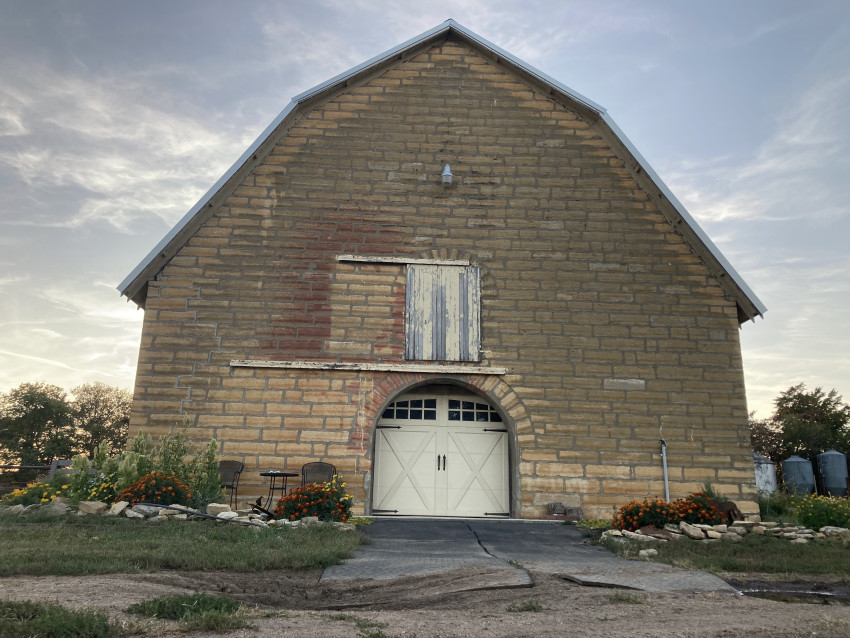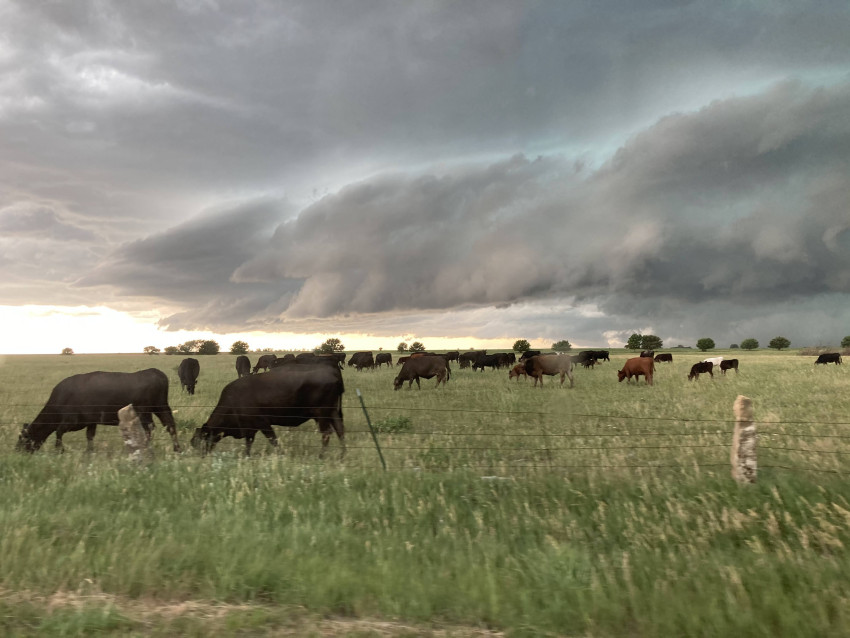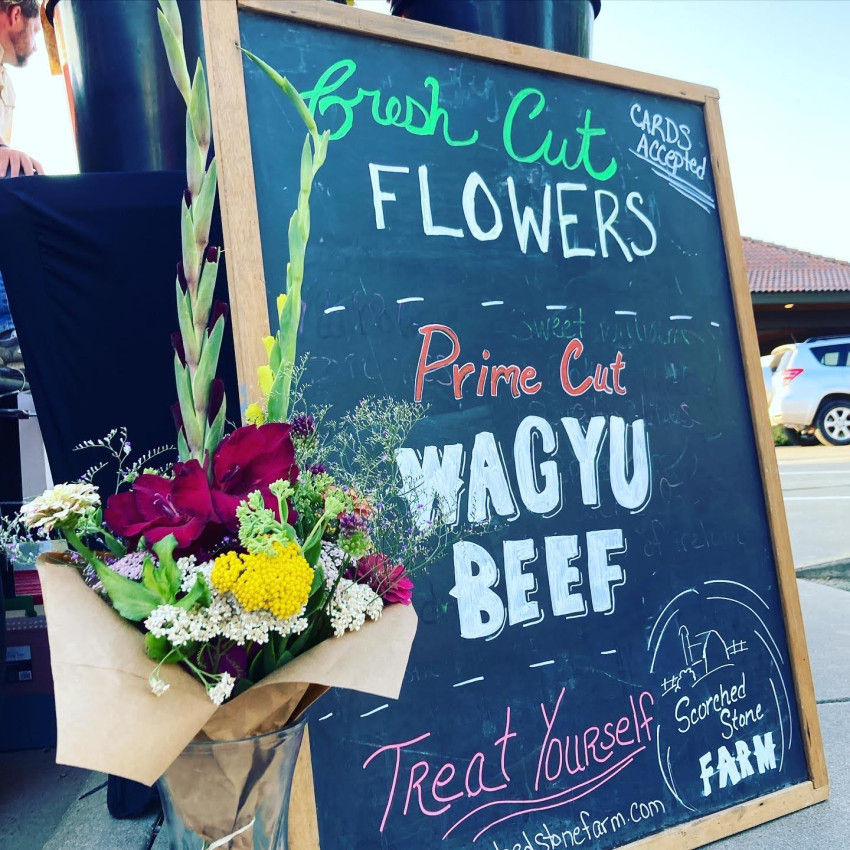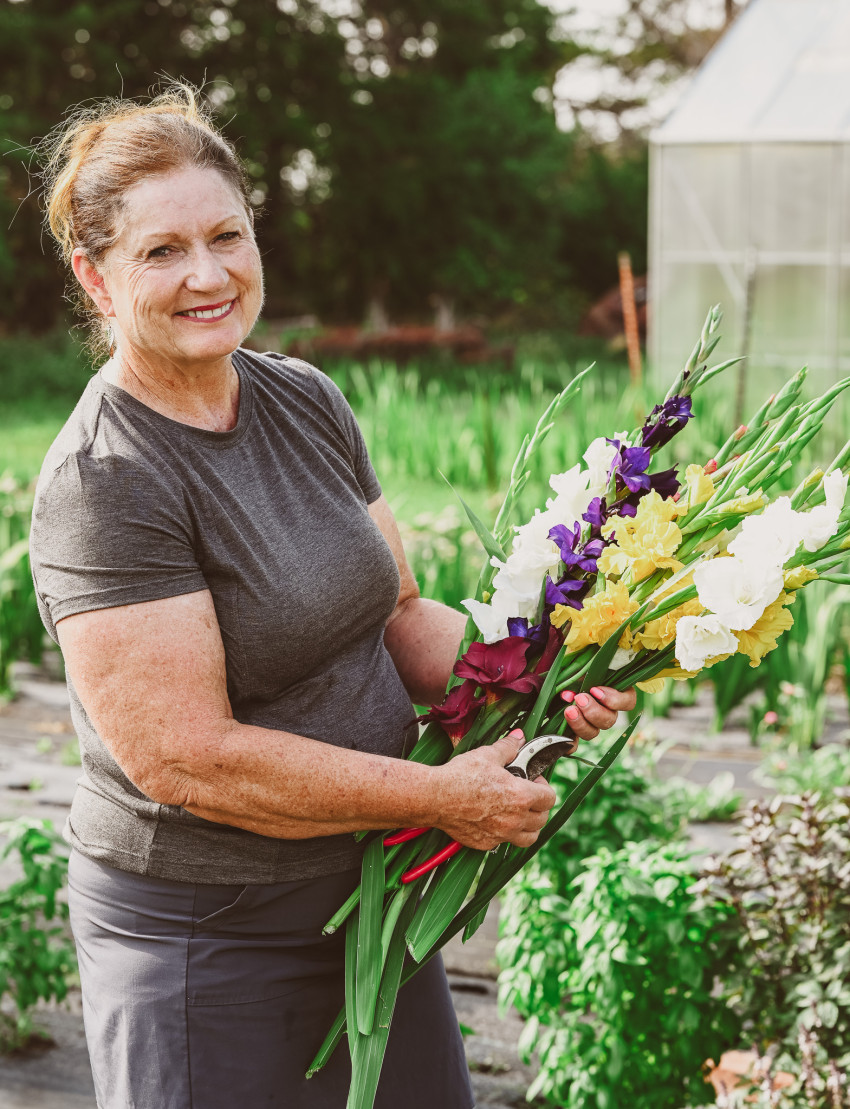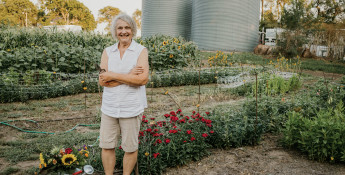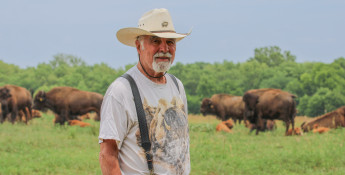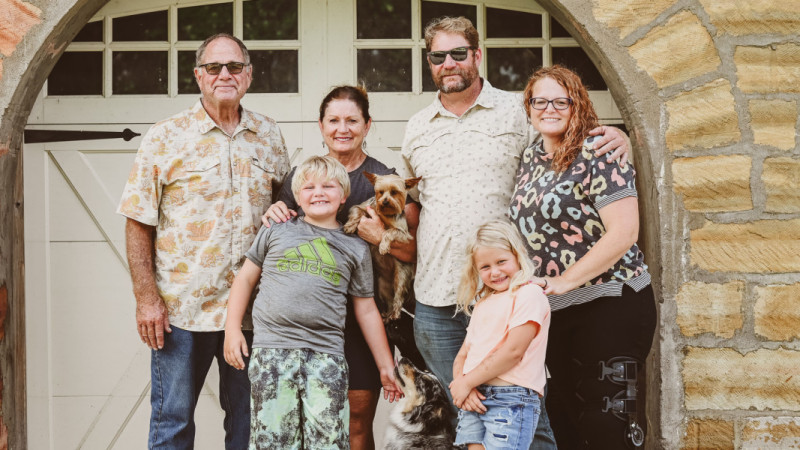By Sheridan Wimmer on February 8, 2024
Kansas family preserves generational farm
Scorched Stone Farm in Barton County diversifies operation to stay on the farm
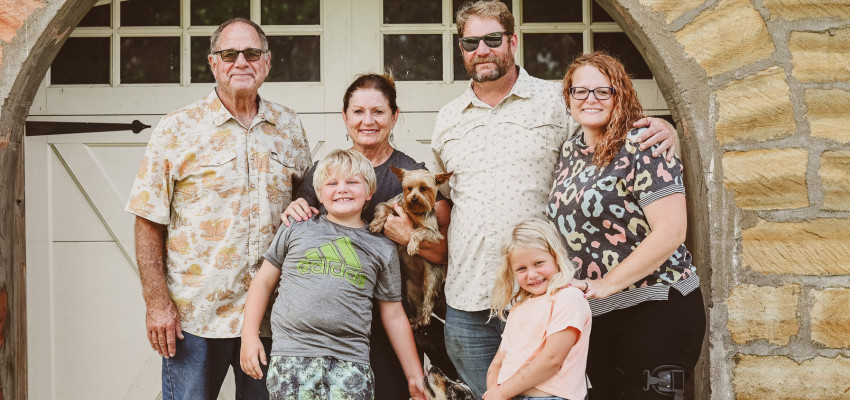
Travel throughout Kansas and you’ll notice a rock Fred Flintstone would dream of quarrying. What certain parts of Kansas lack in trees, it makes up for in limestone. So much so that in certain parts of the state you can still find limestone fenceposts instead of the usual wood or steel.
At Scorched Stone Farm in Barton County, limestone was also used to create a home that has stood through generations of overcoming difficult times, celebrating the good ones and creating a legacy to last as long as the limestone itself.
“The house was built by my great-grandfather from around 1909 to 1911,” Jim Homolka, the patriarch of the family, says. “He quarried the limestone and built this three-story home and the barn.”
The name of the farm pays homage to the barn – where two fires scorched the limestone, turning it red.
From the football field to the cattle range
Jim and his wife, Katie, have four children who sought careers in education. Their oldest, Josh, attended University of Kansas, where he played football. Out of college, Josh and his wife, Jessica, lived in Illinois where Josh was a football coach at Northern Illinois University in DeKalb.
In 2016, the White Sox stadium transformed its field from a game of bats and bases to a game of footballs and first downs. The matchup between Northern Illinois and Toledo was set to start when Josh made a different game plan.
“I bought my first cattle on the field of the White Sox stadium,” Josh says. “We were walking out to the field to start warmups, and I was on the phone, making the purchase.”
A change in perspective
Another life-changing phone call came when Josh and Jessica were in Illinois. This time, it put things into perspective on what matters in life.
“Jim was feeding cattle one day and a post had gone through his armpit up to his chest,” Katie says. “That was when Josh decided maybe it was time he needed to come home and help with the farm.”
Josh and Jessica had a newborn and a toddler at the time, so moving back was a decision they made as a family for their family.
“It was a choice to put family first and also figure out how we can diversify the farm,” Jessica says. “Flowers have always been a passion of Katie’s and our cattle were here.”
Jim, ever a farmer, recovered from his accident and got back to work – this time, with his son.
Moving things home
Jim and Katie never expected their children to return home. They even considered selling their limestone home, barn and land to move closer to their children. But when Josh moved home, a sense of hope prevailed.
“We really struggled,” Katie says. “I think Josh coming back has put some new life into our way of thinking. We can make it, even though it’ll be difficult. We all just have to work hard. We all put effort into this way of life.”
With everyone putting in their fair share of hard work, the Homolkas raise Wagyu cattle, grow crops like milo, soybeans, wheat and alfalfa and started a flower business.
“When I moved back, cattle prices were pretty bad,” Josh remembers. “At the time, Wagyu cattle were a niche brand where you could get a premium. Then when COVID hit, we had around nine head processed, and they sold really quick. We’ve continued to have success with direct-to-consumer sales with farmers markets and local buyers.”
The Homolkas like Wagyu for its ability to impart extra fat in its meat – leading to more marbling and flavor in the end product.
“They put all their fat back into the muscle, so they have really nice marbling,” Josh says.
Adding flowers to the portfolio
Diversifying the farm and ranch was something the Homolkas knew was necessary to continue the 120-year legacy of Scorched Stone Farm. Katie has always had a passion for flowers, so the family leaned into that.
“I’ve always loved the idea of a flower farm,” Katie says. “I’ve been doing some floral designs for more than 30 years.”
“I think over the years, we’ve been creative in pivoting,” Jessica says. “With the flowers, we started with weddings and when COVID hit, that changed things. Then we did some workshops to teach flower arranging and other arts and crafts classes. Then that market got saturated, so we shifted again.”
Shifting not only came through market saturation but also in what the farm was growing.
“We’ve adjusted a lot of what we grow to understand what sells at farmers markets and what sells to local florists,” Jessica says. “At farmers markets, we love using our flowers as a marketing tool. We can get folks to come and share stories about their favorite flower or they remember stories like, ‘Oh, grandma had these or my mom used to have this,’ and you build that conversation. Then they realize we have beef too, so it’s all connected.”
Josh and Jessica’s two kids, Johnnie and Ryker, also get in on the fun of selling items at farmers markets.
“Our daughter, Johnnie, was selling seashells last week and she was wondering why people weren’t buying her seashells,” Jessica says. “I told her she needs to share her story about them – how you went with grandma to the beach, and you found these pretty seashells.”
Teammate mentality
The Homolkas admit farming and ranching aren’t easy. But when there’s so much rich history, the struggles and hardships that happen nearly daily on a farm and ranch remind them that it’s been done before and can be done today.
“I also had a minor in history and political science at KU,” Josh says. “That’s my deal – it’s the connection to the generation before me. I’d like for our kids, or any of the grandkids, to be able to live this lifestyle if that’s what they want one day. I want that to be available to them.”
“The kids will grab flowers, and they'll arrange them and know the names of things,” Jessica says. “They understand pollinators and how giving back to the earth has such a big impact on your mental health and your well-being. And that we can give back to other people and bring some joy, whether that's through beef or flowers or just having a conversation.”
The Homolkas have a team kind of mindset in the work they do. They work together to get the job done and work every day to get better.
“We just keep going,” Josh says of working to continue the legacy of Scorched Stone Farm. “At some point, you’re going to be good enough and you’re gonna win. That’s how football is.”
You can learn more about Scorched Stone Farm at www.scorchedstonefarm.com.

